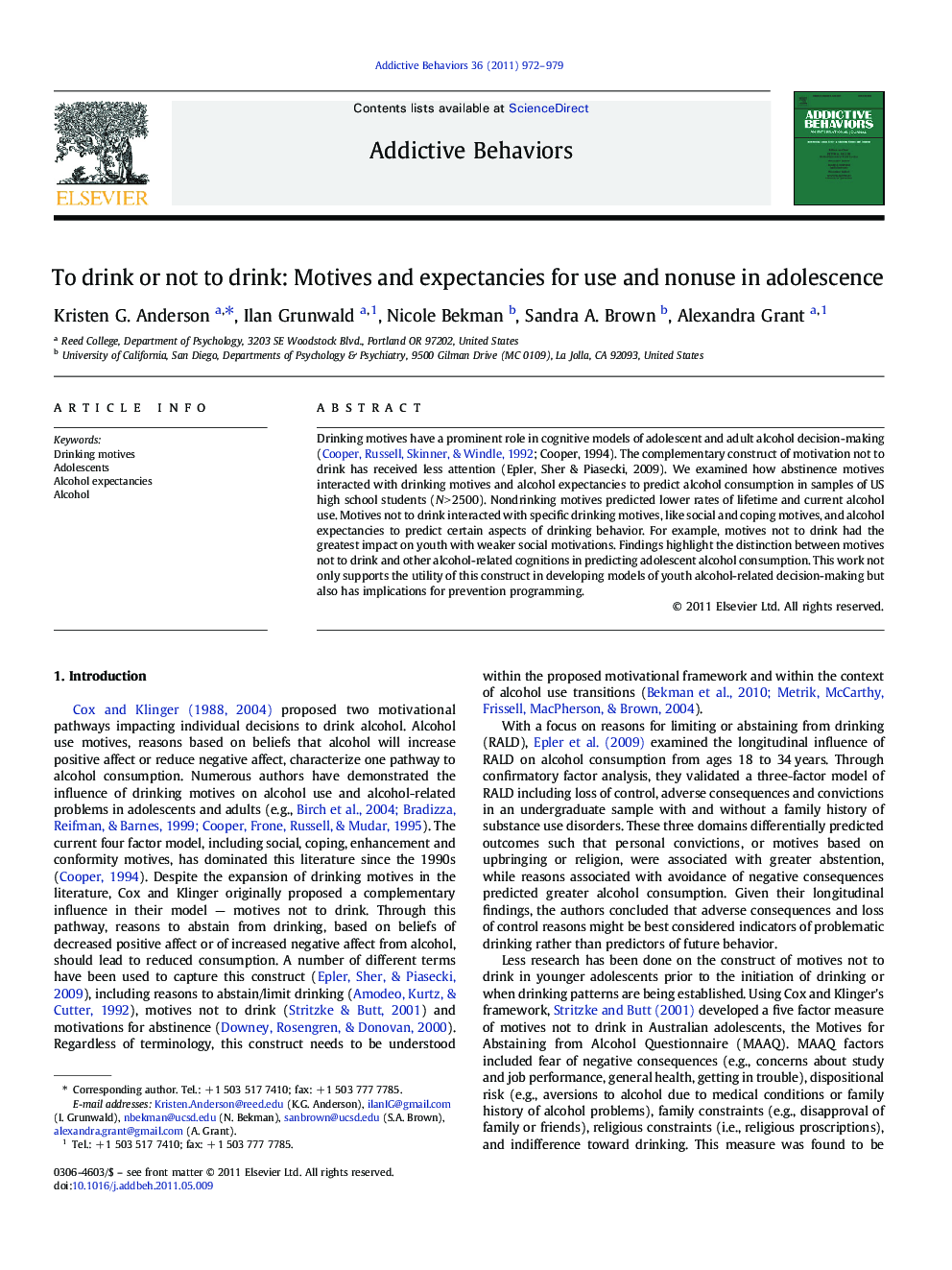| Article ID | Journal | Published Year | Pages | File Type |
|---|---|---|---|---|
| 899671 | Addictive Behaviors | 2011 | 8 Pages |
Drinking motives have a prominent role in cognitive models of adolescent and adult alcohol decision-making (Cooper, Russell, Skinner, & Windle, 1992; Cooper, 1994). The complementary construct of motivation not to drink has received less attention (Epler, Sher & Piasecki, 2009). We examined how abstinence motives interacted with drinking motives and alcohol expectancies to predict alcohol consumption in samples of US high school students (N > 2500). Nondrinking motives predicted lower rates of lifetime and current alcohol use. Motives not to drink interacted with specific drinking motives, like social and coping motives, and alcohol expectancies to predict certain aspects of drinking behavior. For example, motives not to drink had the greatest impact on youth with weaker social motivations. Findings highlight the distinction between motives not to drink and other alcohol-related cognitions in predicting adolescent alcohol consumption. This work not only supports the utility of this construct in developing models of youth alcohol-related decision-making but also has implications for prevention programming.
Research highlights► Motives not to drink are important factors to consider in models of adolescent alcohol use decision-making. ► Negatively associated with motives to drink and positive alcohol expectancies. ► Positively related to expectancies for not drinking. ► Generally predicted less adolescent alcohol consumption and problems in high school. ► Interesting patterns of moderation occurred when considered in tandem with other drinking-related cognitions.
